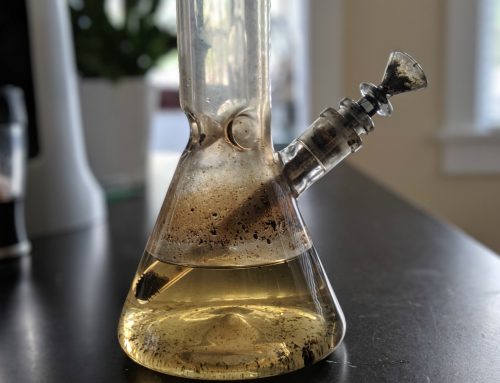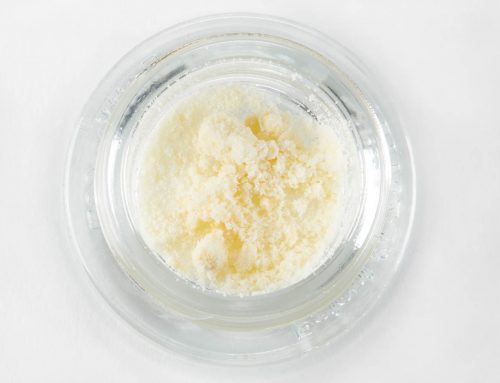If there’s one thing modern medical science has taught us about cannabis, it’s that this is one plant with seriously impressive medicinal properties. But even in the face of overwhelming and conclusive evidence, there will always be those who continue to suggest and genuinely believe that marijuana is harmful.
Think of it this way – each and every year on a global basis, somewhere in the region of 100,000 people are killed by prescription drugs. As for cannabis, exactly how many people would you expect to be killed every year by this ‘dangerous’ and ‘harmful’ drug?
The answer…zero.
“There are no deaths from cannabis use. Anywhere. You can’t find one,” the words of Dr. Lester Grinspoon, professor emeritus at Harvard Medical School.
A Lethal Dose? 
The simple fact of the matter is that despite the fact that we know cannabis has been used for somewhere in the region of 10,000 years, not one fatality has ever been linked directly with marijuana use. Which isn’t exactly surprising, given the way in which research has shown that you would have to use an extraordinary amount of the stuff in a ridiculously short period of time to come close to a toxic overdose.
And we do mean ridiculous – in the space of 20 minutes, experts reckon that you would need to smoke approximately 15,000 joints to get enough delta-9 tetrahydrocannibinol in your body to kill you. Which suffice to say, just isn’t going to happen.
By contrast, it is surprisingly easy to make yourself extremely ill or even kill yourself with alcohol, over-the-counter painkillers or even caffeine. And when it comes to prescription drugs, given the fact that many have only been on the market for a limited period of time, there’s really no disputing the fact that we are in fact still just testing them. Compare this to the 10,000 years or so that human beings have been using marijuana and you have yourself a rather unbalanced picture when it comes to practical research and knowledge.
A Medical Marvel 
As for the medicinal properties of marijuana, experts believe that there are well over 200 different medical conditions that can be treated or managed in some way by measured use of cannabis. What’s more, new entries are being added to the list practically every day, as researchers in some circles are finally allowed to carry out the necessary tests.
So while it would take quite some time to go into depth with each and every one of these 200+ conditions, what follows is an overview of 10 serious and extremely common illnesses that are known to respond favourably to medicinal marijuana:
1 – Alzheimer’s Disease
First of all, it’s been more than a decade now since one of the most important discoveries with regard to the beneficial effects of cannabis for Alzheimer’s patients was made. Over in California, a team of scientists from the Scripps Research Institute set out to discover exactly what effect delta-9-tetrahydrocannabinol (THC) had on patients with confirmed Alzheimer’s disease. The debilitating and deadly symptoms and side-effects of Alzheimer’s are known to be caused by plaques which form on the brain – a process accelerated by an enzyme called acetylcholinesterase. The tests showed that THC significantly slowed this acceleration more reliably and safely than any conventional drugs.
2 – Epilepsy
A great deal of research into the effects of cannabis on epilepsy patients is being carried out right now, ever since doctors first discovered that both the severity and frequency of seizures can be reduced significantly with measured cannabis intake. Particularly in the case of several rare forms of epilepsy, cannabis has been found to have an effect that goes significantly beyond any treatment or medication currently available. “Although marijuana is illegal in the United States, individuals both here and abroad report that marijuana has been therapeutic for them in the treatment of a variety of ailments, including epilepsy,” wrote Dr. Robert J. DeLorenzo, professor of neurology at the VCU School of Medicine.
3 – Multiple Sclerosis
An extremely difficult condition to treat by conventional methods, recent studies have shown that the muscle spasticity associated with multiple sclerosis can be eased effectively with medicinal marijuana. Clinical trials have brought about conclusive evidence that the pain caused by contractions in the arms and legs of those with MS can be brought under control with cannabis use far more effectively than conventional drugs. Not only this, but many patients involved in the trials reported that the marijuana they were provided with made them feel considerably happier and more positive in general while using it.
4 – Glaucoma
Of course, the use of cannabis as an effective treatment for glaucoma dates back to the 1970s and is now known to have prevented thousands of cases of blindness worldwide. Not only does cannabis significantly reduce intraocular pressure in the eye that can damage the optic nerve, but research also suggests that it can actually repair damage already done at the same time.
5 – Arthritis
The anti-inflammatory and pain-reducing properties of cannabis really could not be better suited to arthritis patients. Along with reducing inflammation, easing chronic pain and generally facilitating better movement, arthritis patients have found that measured cannabis use can also assist with restful sleep. It’s important to note that cannabis cannot go so far as to treat the cause of arthritis, but it can certainly help make the symptoms more tolerable.
6 – Depression
One of the most important studies into cannabis and depression was carried out in 2005 by a team of researchers from USC and SUNY Albany. At the time, somewhere in the region of 4,500 people were involved in one of the biggest riles of its kind ever to be authorised, with the primary objectives of finding out whether cannabis can or should be used to treat depression. As far as the researchers were concerned, the results were glaringly obvious. “Those who consume marijuana occasionally or even daily have lower levels of depressive symptoms than those who have never tried marijuana,” read the report published after the trial. “Weekly users had less depressed mood, more positive affect, and fewer somatic complaints than non-users.”
7 – Anxiety
Certain strains of cannabis are now routinely turned to by thousands of people all over the world as an effective and on-going treatment for anxiety. While it’s true to say that some people react differently than others to cannabis and find themselves experiencing an effect that is the opposite of calming, the right strains for the right individuals prescribed by the right specialists can be nothing short of life changing. Cannabis is also known to have considerably fewer side effects than alternative prescription medications used to treat anxiety.
8 – Hepatitis C
While it’s not as if cannabis itself can prevent or treat hepatitis C, a study carried out a few years ago found that measured cannabis use can actually boost the effectiveness of hepatitis C drug therapy. Millions of adults and children contract the disease annually, which means a course of treatment with particularly nasty side effects like crippling fatigue, muscle pains, nausea, depression and loss of appetite. During clinical trials, not only did the participants provided with marijuana find it much easier to cope with the side-effects, but they also responded better to the treatment in general and made faster, fuller recoveries.
9 – Morning Sickness
Unsurprisingly, the topic of using cannabis of any kind during pregnancy is one of heavy debate and controversy. But at the same time, it’s important to remember that there is a clear difference between sitting around getting stoned every night and using professionally administered and measured medicinal cannabis to ease the symptoms of morning sickness. Incredibly, a study carried out by a team from the British Columbia Compassion Club Society discovered that more than 90% of pregnant women suffering from morning sickness found cannabis to be extremely effective in helping them cope. Incidentally, the only studies that have ever been carried out into the potentially harmful effects of smoking while pregnant have focused exclusively on prolonged and heavy use, with the majority having reached the conclusion that cannabis in measured doses taken under professional advisement may pose no risk whatsoever.
10 – Cancer and Chemotherapy
Last but not least, studies into the way in which cannabis may have the potential to slow down or even stop the growth of cancerous tumours is on-going. Evidence to date is somewhat inconclusive, though seems to suggest that several cannabis compounds could be just as, if not more effective than conventional approaches to treating cancer. But at the same time, what we absolutely do know conclusively is that medicinal cannabis can be one of the most effective substances known to man when it comes to easing and relieving the side-effects of chemotherapy. Patients undergoing chemotherapy often suffer an extensive range of highly debilitating symptoms, including nausea, chronic fatigue, muscle pains and depression. In tests, those prescribed with measured doses of medicinal cannabis reported significant easing of all such symptoms and a heightened ability to cope with those that remained.











